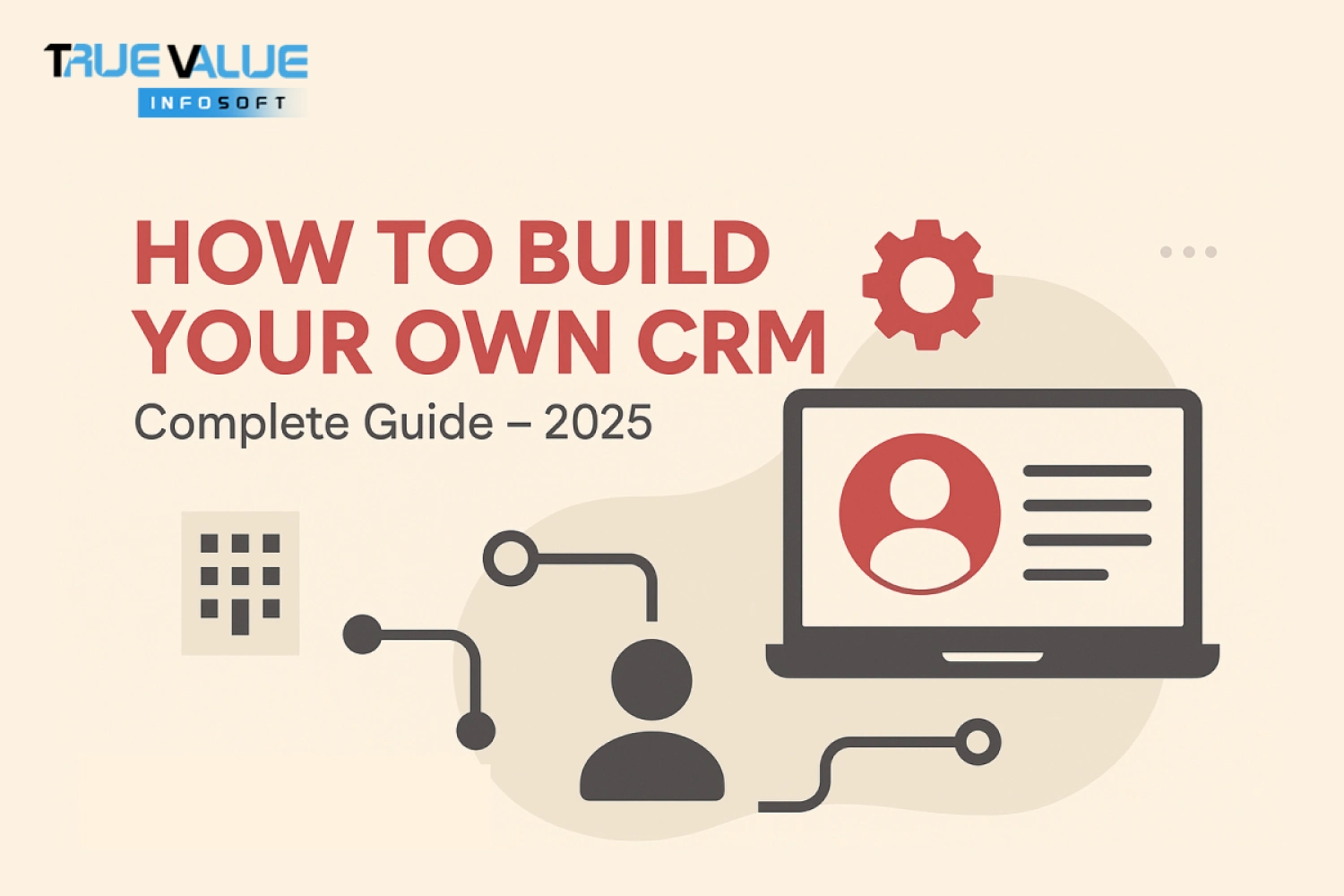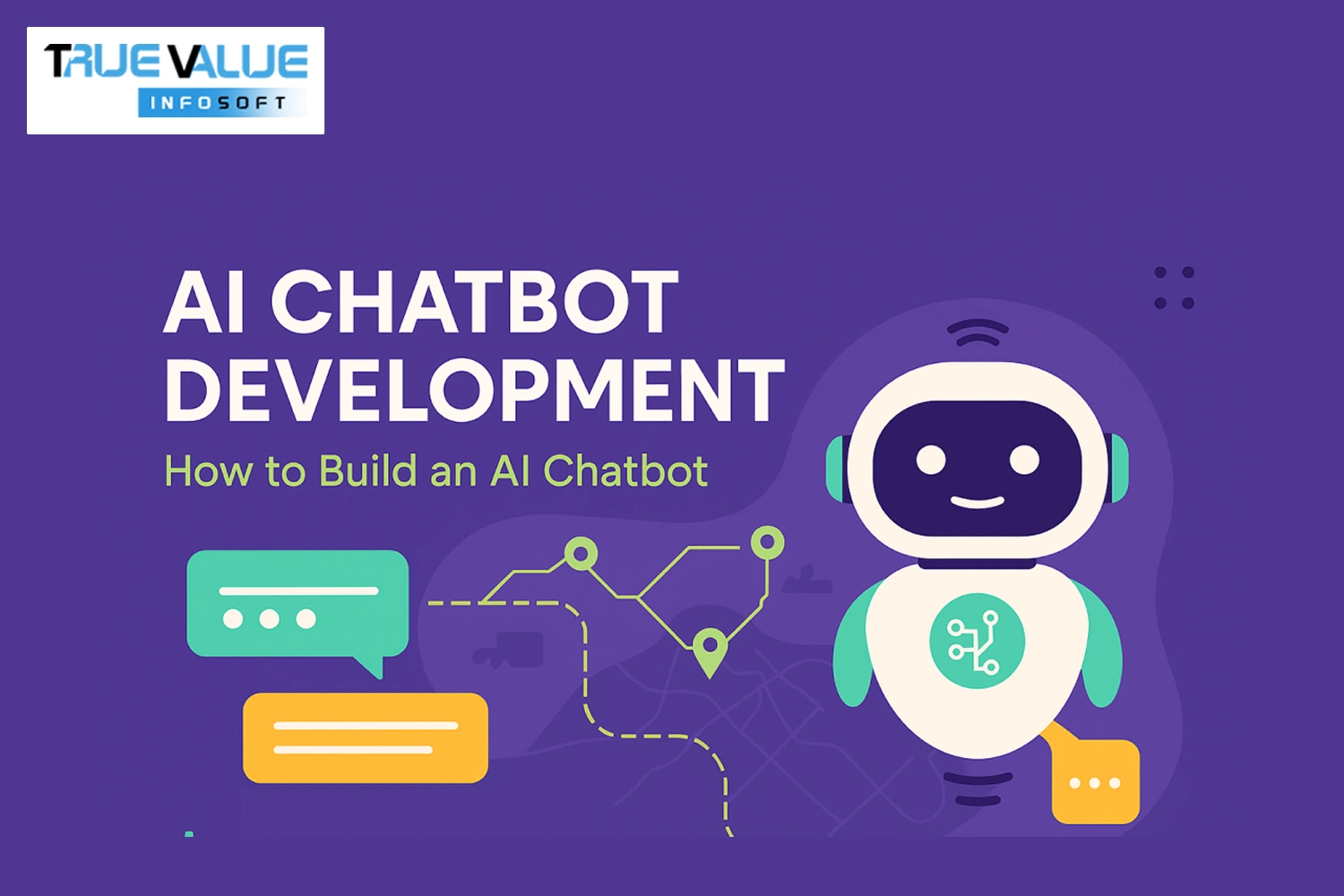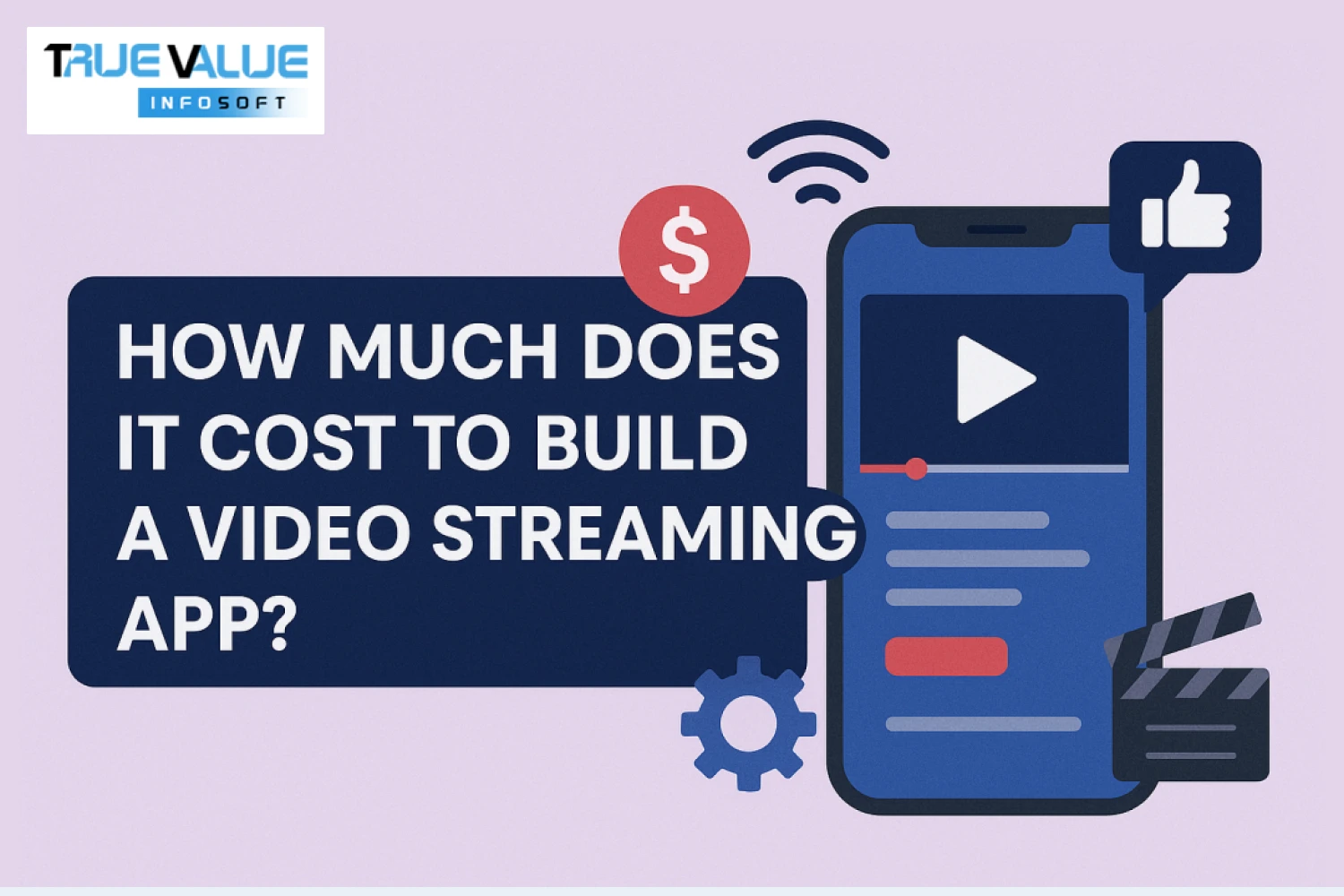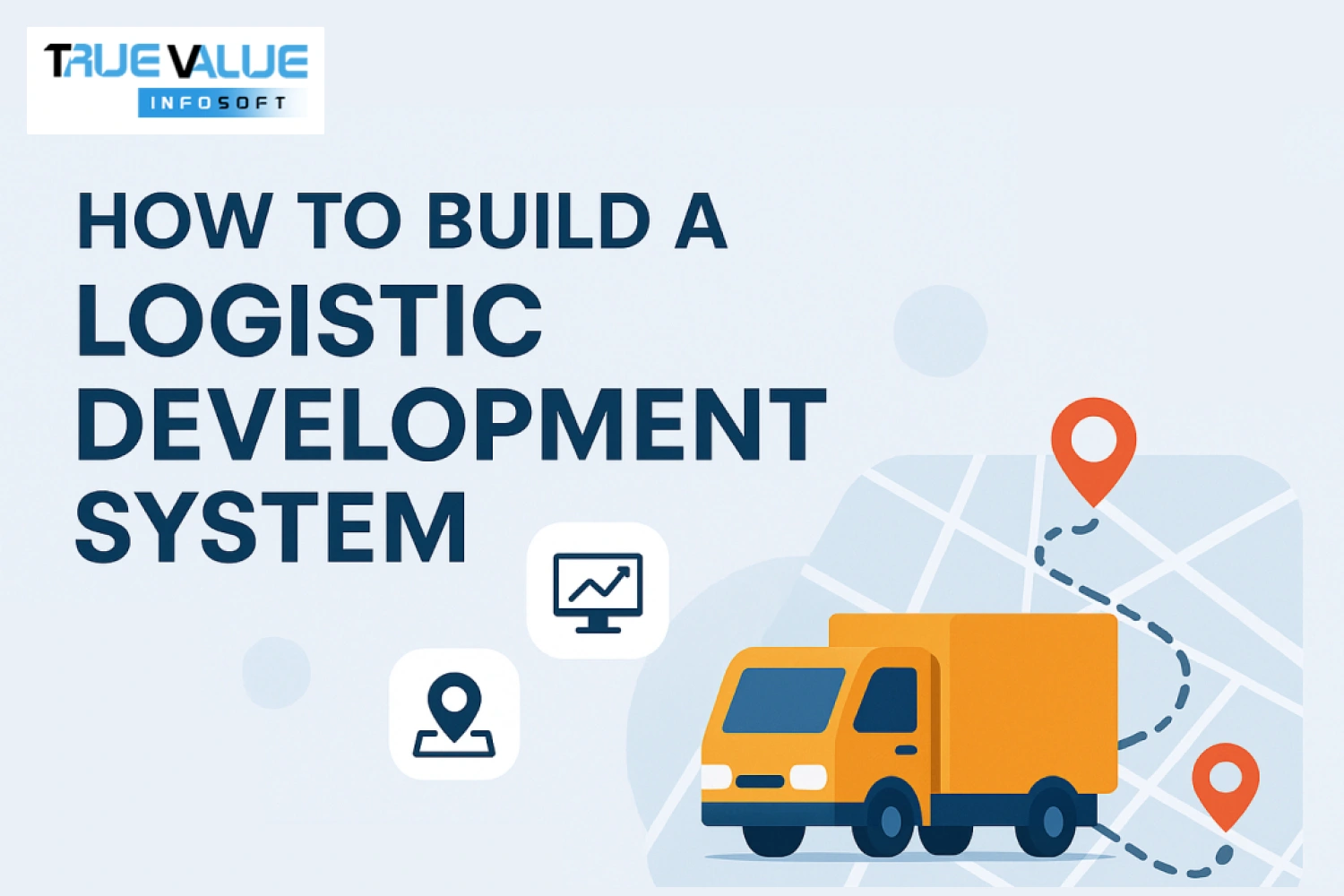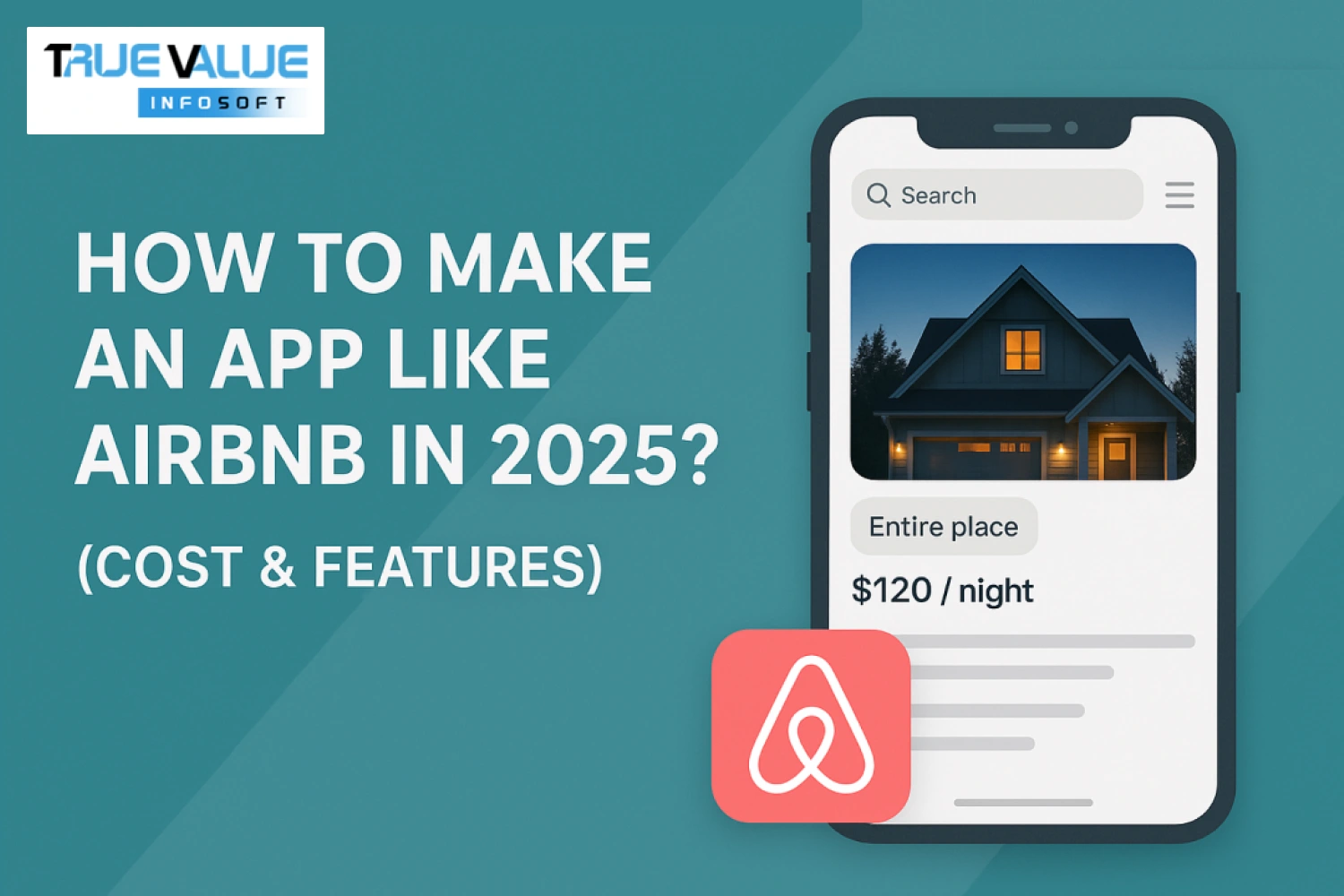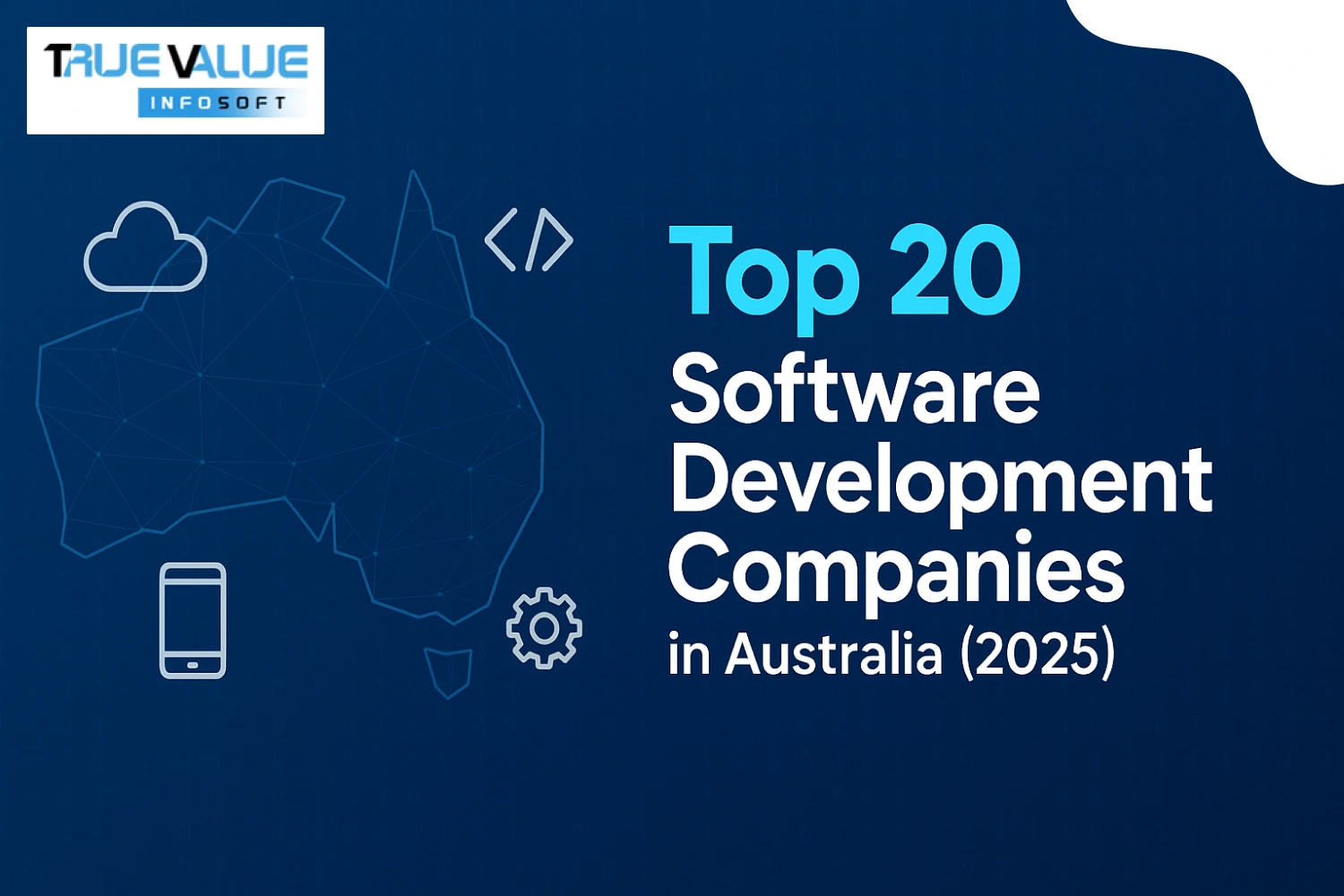Introduction
Have you ever felt overwhelmed trying to manage customer data, sales processes, and support queries across multiple tools? If yes, you're not alone. Many businesses today are turning to Custom CRM (Customer Relationship Management) systems to streamline their operations and improve customer relationships. But building your own CRM may sound like a daunting task—until you discover the right approach and partner.
That’s where True Value Infosoft, the best app development company in India, comes into the picture. We specialize in building intelligent, scalable, and user-centric CRM solutions tailored to your business needs. Whether you're a startup or a large enterprise, a custom-built CRM gives you complete control over your workflows, enhances productivity, and ensures a seamless customer experience.
In this blog, we’ll take a deep dive into what CRM is, its key features, benefits, the complete development process, estimated cost, and why choosing True Value Infosoft is the best decision you can make for CRM development. By the end of this guide, you’ll have a clear roadmap for building your very own CRM platform—exactly the way you envision it.
Let’s get started.
What is a CRM?
CRM stands for Customer Relationship Management, a tool or system that helps businesses manage interactions with current and potential customers. It consolidates customer data into one centralized platform, making it easy for teams to manage leads, follow up on sales, and provide top-notch customer support.
From tracking customer activity and behavior to automating emails and generating insightful reports, CRM systems are essential for building long-lasting relationships and boosting overall business performance.
CRMs are used across industries such as e-commerce, real estate, healthcare, finance, travel, education, and more. Whether cloud-based or on-premise, CRMs empower businesses to stay organized, productive, and focused on customer satisfaction.
Why Do Businesses Need a CRM?
Here are the core reasons businesses of all sizes need a CRM in 2025:
- Centralized Customer Data: All customer info is stored in one place, accessible to all relevant departments.
- Improved Customer Experience: Timely follow-ups, personalized communication, and better service.
- Sales Automation: Streamline lead nurturing, pipeline management, and deal tracking.
- Team Collaboration: Marketing, sales, and support teams can coordinate more efficiently.
- Analytics & Reporting: Real-time data and insights into customer behavior and sales performance.
- Increased Productivity: Save time on repetitive tasks and reduce errors.
- Scalability: Easily adapt CRM features as your business grows.
A custom CRM ensures all these features are tailored exactly to your needs—without unnecessary tools or bloatware.
Types of CRM Systems
Before building your CRM, it's important to understand the major types available:
1. Operational CRM
Focuses on automation of sales, marketing, and customer support.
2. Analytical CRM
Gathers and analyzes customer data to drive strategic decisions.
3. Collaborative CRM
Facilitates communication and collaboration between teams and departments.
4. Strategic CRM
Focuses on long-term customer engagement and satisfaction through personalized services.
Your business might benefit from one or a combination of these types depending on your needs.
Features of a Modern CRM
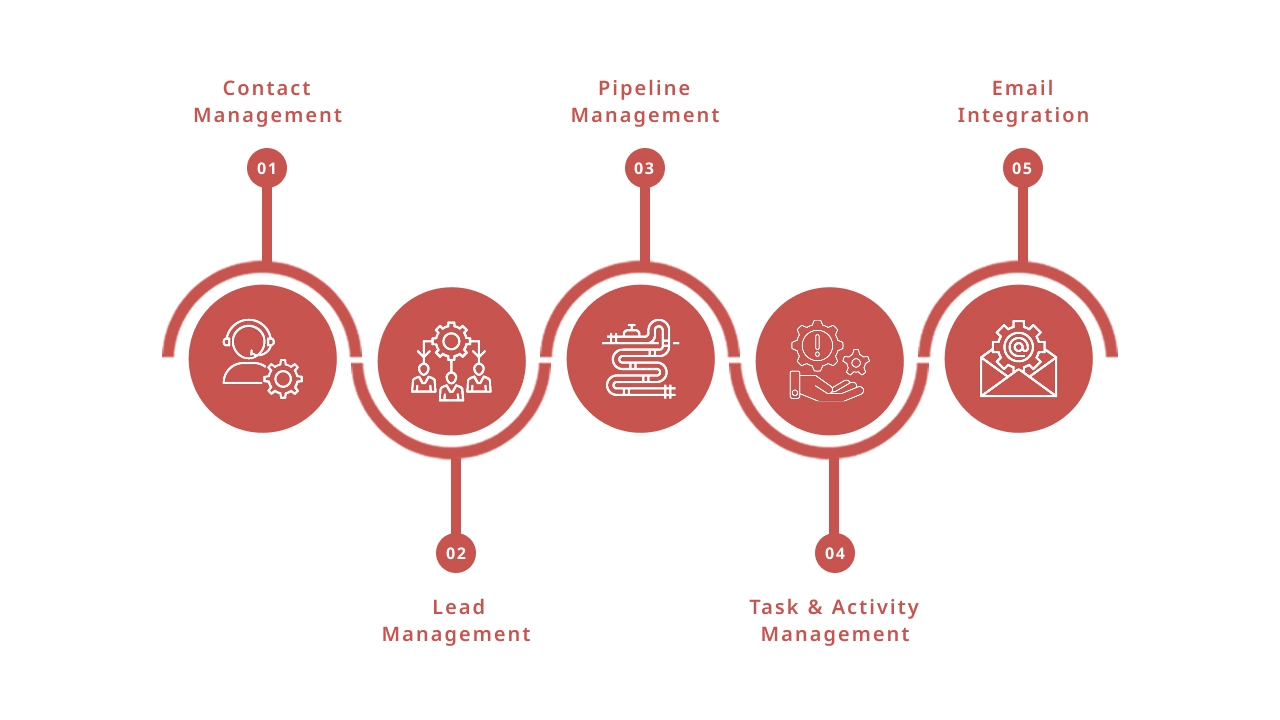
A powerful CRM should be feature-rich yet intuitive. Here are must-have CRM features:
1. Contact Management
Store and organize customer data with tags, filters, and segmentation.
2. Lead Management
Capture, score, assign, and follow up with leads effortlessly.
3. Pipeline Management
Visualize deals in different sales stages and move them forward strategically.
4. Task & Activity Management
Assign tasks, set deadlines, and automate reminders.
5. Email Integration
Send, track, and manage emails directly from the CRM dashboard.
Benefits of Building a Custom CRM
While off-the-shelf CRMs are readily available, building a custom CRM offers unmatched advantages:
- Tailored exactly to your business needs
- No unnecessary features or extra costs
- Improved team adoption and efficiency
- Full control over data security
- Scalable as your business grows
- Seamless integration with existing software
- Better UI/UX design based on your workflow
- Long-term cost savings with ownership rights
Step-by-Step Process to Build Your Own CRM
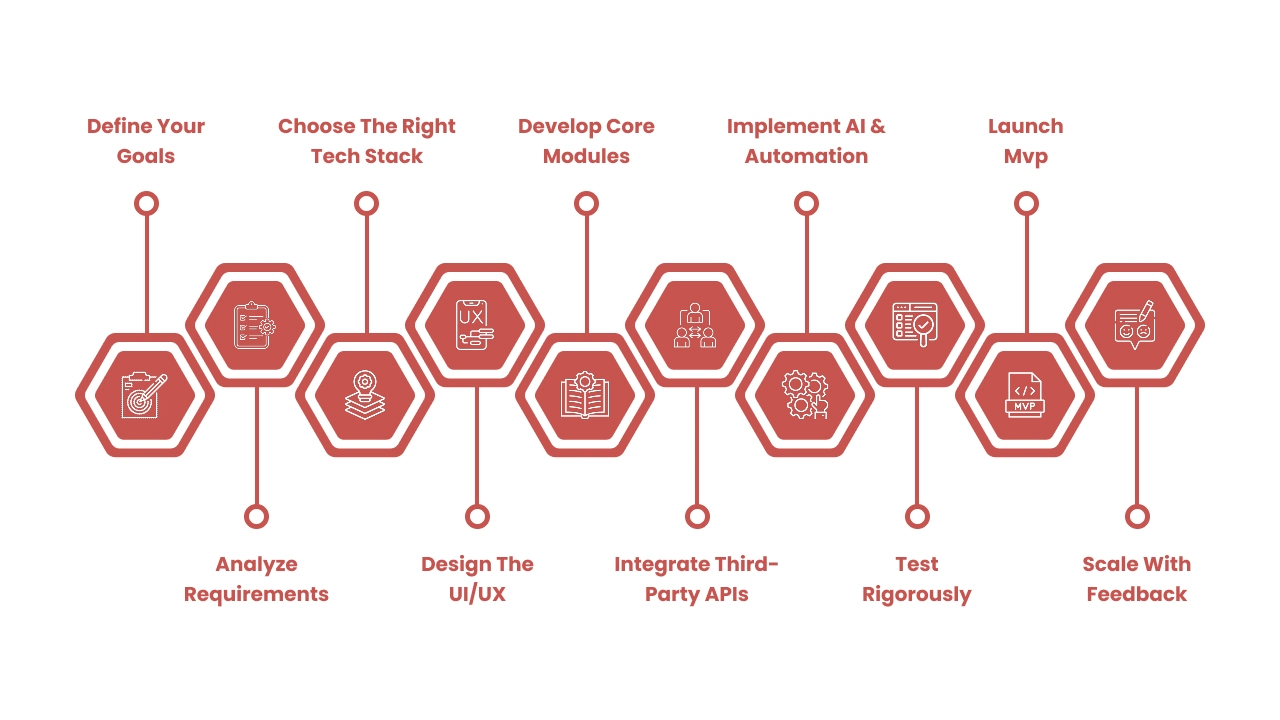
Step 1: Define Your Goals
Understand what problems your CRM will solve and what features are must-haves.
Step 2: Analyze Requirements
Gather input from all stakeholders—sales, marketing, support teams.
Step 3: Choose the Right Tech Stack
Decide on technologies for front end, back end, database, hosting, etc.
Step 4: Design the UI/UX
Design user flows, wireframes, and user-friendly interfaces.
Step 5: Develop Core Modules
Start coding CRM modules—contact, leads, dashboard, notifications, etc.
Step 6: Integrate Third-Party APIs
For email, SMS, payment, marketing, etc.
Step 7: Implement AI & Automation
Add smart suggestions, task automation, and predictive analysis.
Step 8: Test Rigorously
Perform unit testing, integration testing, and UAT.
Step 9: Launch MVP
Release a minimum viable product to gather feedback.
Step 10: Scale with Feedback
Iterate and add features based on user input.
Technology Stack for CRM Development
Here’s a modern tech stack to consider:
- Frontend: React.js, Angular, Vue.js
- Backend: Node.js, Django, Laravel, Ruby on Rails
- Database: PostgreSQL, MongoDB, MySQL
- Hosting: AWS, Google Cloud, Azure
- Mobile App: React Native or Flutter
- AI: OpenAI API, TensorFlow, Scikit-learn
- DevOps: Docker, Kubernetes, GitHub Actions
- Integrations: Stripe, Twilio, SendGrid, Zapier
Cost of Building a Custom CRM in 2025
The cost varies depending on features, scale, and development time.
| CRM Type | Estimated Cost Range (USD) |
|---|---|
| Basic CRM (MVP) | $8,000 – $15,000 |
| Mid-level CRM | $15,000 – $35,000 |
| Enterprise-Grade CRM | $40,000 – $100,000+ |
Factors affecting cost:
- Number of modules
- UI/UX complexity
- Mobile app inclusion
- AI integration
- Hosting and support
True Value Infosoft offers cost-effective pricing with high-end delivery.
Common Challenges in CRM Development
- Gathering clear requirements
- Balancing features vs. budget
- Ensuring user adoption
- Avoiding feature overload
- Integration compatibility
- Ensuring scalability
- Data migration issues
Working with a reliable tech partner mitigates most of these challenges.
Why Choose True Value Infosoft for CRM Development?
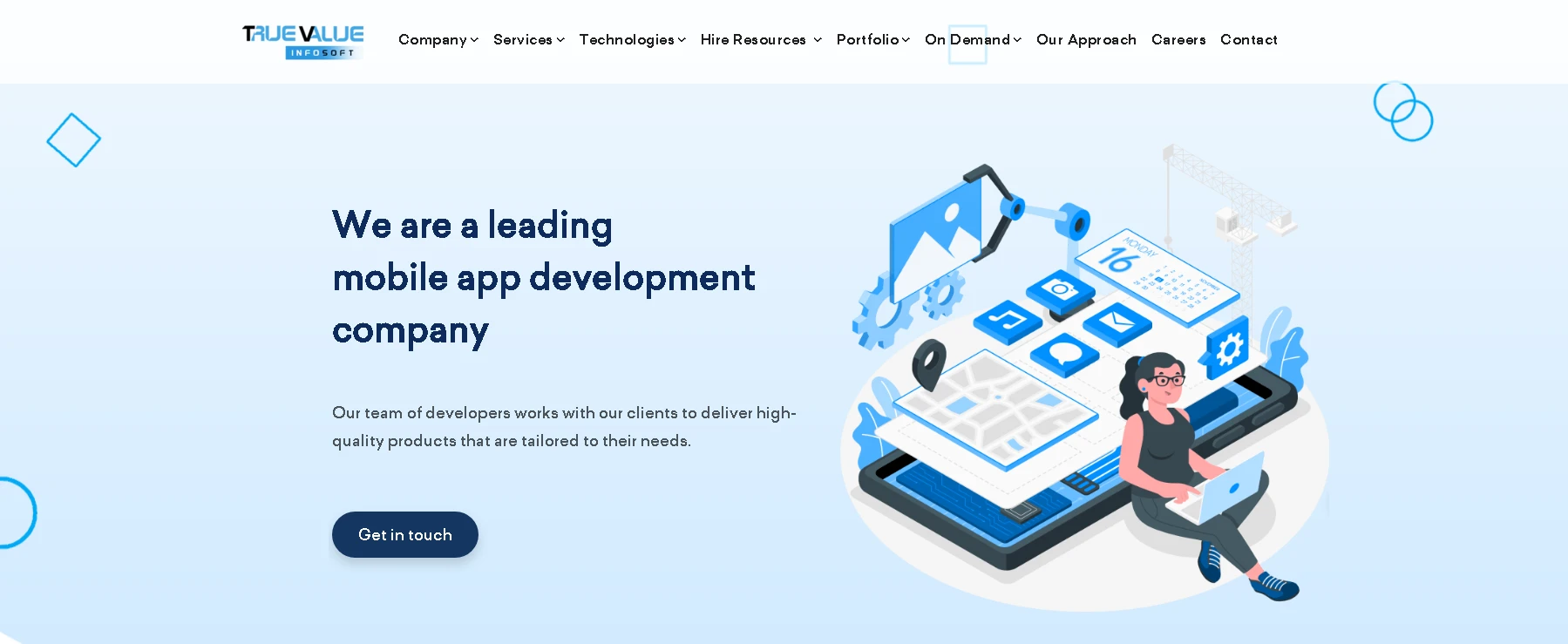
At True Value Infosoft, we don’t just build software—we craft solutions that drive business transformation.
Here’s why we’re the best choice:
- Proven Expertise: 10+ years in delivering enterprise-grade software
- Custom Development: We tailor each CRM to match your goals
- Faster Time-to-Market: Agile development for rapid delivery
- Data Security: End-to-end encryption and compliance protocols
- Scalable Architecture: Ready to grow as your business scales
- AI Integration: Chatbots, predictive analysis, and automation
- Mobile-First: Native or hybrid mobile CRM solutions
- Transparent Pricing: No hidden costs, only value
- 5-Star Reviews: Trusted by 200+ global clients
Let us help you bring your CRM idea to life with precision, speed, and innovation.
Conclusion
Building your own CRM system in 2025 is more than just a tech decision—it’s a strategic investment in your company’s growth. A custom CRM offers unmatched flexibility, deeper customer insights, and seamless team collaboration. From lead management to AI-powered decision-making, the possibilities are endless when you build the right CRM.
Whether you’re starting from scratch or upgrading from outdated systems, True Value Infosoft is your go-to partner. As the best app development company in India, we ensure your CRM is scalable, secure, and tailored to perfection.
Now’s the time to take control of your customer data and workflows. Let’s build something extraordinary—together.
FAQs
Typically, a custom CRM takes 3–6 months depending on the complexity, features, and testing required.
Yes, AI features like chatbots, predictive lead scoring, and sentiment analysis can significantly enhance CRM capabilities.
Building a CRM is better for businesses with unique workflows, while buying is faster for general needs. Custom CRM offers more flexibility and scalability.
Industries like real estate, finance, e-commerce, healthcare, education, and travel greatly benefit from CRM systems.
True Value Infosoft offers customized, scalable, and AI-integrated CRM development with transparent pricing and a proven track record.
